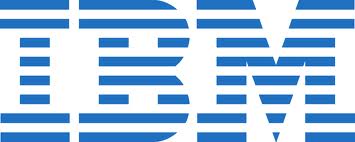 Pop quiz: Name a company that competes in the enterprise social software market with the likes of Jive and Yammer but is far bigger than either of those two solutions, with over 100 million people using it worldwide, including millions with the United Nations, more millions at the U.S. Department of Education, and hundreds of thousands at Texaco.
Pop quiz: Name a company that competes in the enterprise social software market with the likes of Jive and Yammer but is far bigger than either of those two solutions, with over 100 million people using it worldwide, including millions with the United Nations, more millions at the U.S. Department of Education, and hundreds of thousands at Texaco.
OK, here’s one more clue: The company has over 500,000 staffers and contractors connected to its own social network. Now it should be easy: There aren’t many companies of that size globally or in the U.S.
The answer, of course is IBM.
A just-released IDC report crowned the Armonk, New York company the leader in the enterprise social space for the third year running. IBM Connections booked $105.4 million in revenue, with a market share of 13.7 percent, not quite double that of the closest competitor, Jive, which did $65.3 million for an 8.5 percent market share.
Yammer, the social enterprise company that Microsoft is rumored to be in the process of buying, is in eighth place with $22.3 million. That’s behind competitors Communispace, Telligent, Socialtext, Mzinga, and Lithium.
 IBM is growing nearly two times faster than the overall market, which is itself expected to reach $4.5 billion by 2016. That’s huge growth from $767.4 million in 2011.
IBM is growing nearly two times faster than the overall market, which is itself expected to reach $4.5 billion by 2016. That’s huge growth from $767.4 million in 2011.
VentureBeat spoke to Jeff Schick, IBM’s VP of social software, and Karen Lilla, manager of external relations yesterday.
“In 2006 I helped create IBM Connections, our social software technology,” Schick said. “Now we’re on our sixth major release and are used by many, many companies around the planet.”
Eight out of the top 10 banks use IBM Connections, and the software’s market share is twice that of Jive. Connections has its roots in the venerable Lotus suite but offers the full suite of modern solutions: blogs, wikis, forums, chat, status updates, and an internal social network.
“It’s a really robust communications platform,” Schick told VentureBeat. “The UN has millions of people on Connections running employee interaction, and interaction with member nations.”
The important components for IBM match its enterprise focus: scalability, support for overall governance, risk management, and compliance, and powerful analytics to make sense of the huge mass of data hundreds of thousands of people create in a massive internal social network.
And, as one would expect from a solution this size, it offers iOS, Android, Windows Phone, and BlackBerry apps that all allow users to connect remotely, find information, search for an expert, and access data and documents.
“I think that table stakes for really having an excellent solution in this space is you need to be on every mobile platform,” says Schick.
The company still sees a lot of room to grow. According to IBM’s own research, only 17 percent of CEOs are using social business platforms to connect with clients. IBM expects that number to jump to 57 percent within the next few years. The company sees the social software market as fragmented right now, with many small competitors, including Yammer.
Schick did not want to comment on Yammer’s rumored acquisition by Microsoft, but, on further questioning, indicated he was not impressed the company’s offerings: “I compete against Yammer in the market, and I think they’re incomplete.”
For some reason, IBM doesn’t often get the spotlight in the Silicon Valley press. Possibly that’s a function of an IBM marketing strategy aimed at enterprise, not startups. Maybe it’s even due to a prejudice lingering from past years of Lotus Notes … it just doesn’t smell modern.
In any case, that hasn’t come in the way of IBM capturing the lion’s share of the market.
Image credit: ShutterStock


